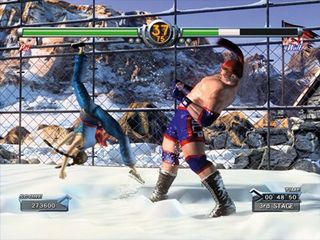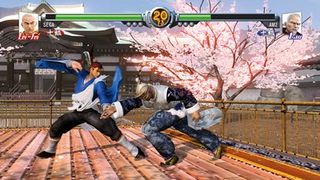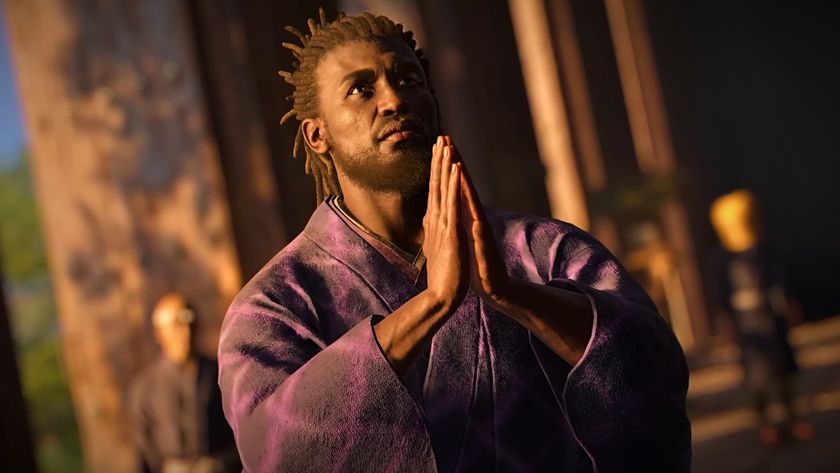The games they couldn't kill
These games are going to be around longer than you are
Virtua Fighter
We’ve talked a lot recently about the vitality and legacy of the Street Fighter series, so in this feature we wanted to shine the limelight on its 3D counterpart. Because within the polygon realm, Virtua Fighter absolutely is the Mike Tyson of the fighting genre. Only without the ear biting. We’ll leave that kind of nonsense to Mortal Kombat, thankyou very much.
When VF throat-punched its way into arcades in 1993 it was a genuine revolution for an industry which too often uses that term as a meaningless catch-all superlative. While many gamers were beginning to voice dissent at Street Fighter II’s continuing policy of incremental tweaks and upgrades (it sounds sacrilegious now, we know), Virtua exploded onto the glowing screens of the world’s sticky-carpeted gaming caves with something completely new.

Gone were the showboating, flame-scorched, super-mega-hyper-ultra moves of its 2D ancestors, replaced with a much more realistic toe-to-toe martial arts style. Inhumanly high-flying ariel specials and fireballs were replaced with myriad variations on punches, kicks and grapples, and while many of us at first scoffed at what we saw as its ‘simple’ gameplay and miserly three buttons, boy were we ever wrong.
From the very start, VF was one of the deepest and most complex fighters around, and that tradition has been honed to an art form in its sequels. Its early doubters were just looking at it with eyes conditioned to a totally different style of combat play. Wheras normal moves in a game like Street Fighter II act as little intro sequences in order to queue up special move combo round-offs, in Virtua Fighter the normal moves are the specials. A few big flair attacks are still available of course, but the depth of the game doesn’t come from setting them up. Instead, it comes from experimenting with the dozens of hand-to-hand moves available to each character and working out how to string together the most effective flurries of punishment and cat-and-mouse walls of defense. It’s a fighting game about the real technicalities of fighting, and while many weren’t ready for that at first, it’s exactly the quality that has made it last.

While Tekken games have generally had the bigger sales over the years, that fact doesn’t make it the better game. Tekken’s popularity arguably comes from it’s garish cast of more fantastical fighters and the accessibility of its preset combo chains, and while that in no way makes it a bad game, Virtua Fighter’s appeal comes from a deeper and more explorable gameplay set up. Virtua isn’t a friendly game to the beginner, but that’s a necessity of its strength. The complexity and versatilty of its vast move set needs to be learned with prolonged play, and while that might be initially offputting, the game’s lifespan has been vastly extended as a result.
It’s a miracle of game design that each evolving instalment remains so painstakingly well-balanced across all of the wildly varying fighters and martial arts disciplines available, but Sega takes these things very seriously. As result, so do VF’s players. The hardest of the core are happy to spend year upon year experimenting and honing their attacks and counters, meaning that the scope of the game is ever-expanding as gamers and developers alike push the possibilies.
Sign up to the GamesRadar+ Newsletter
Weekly digests, tales from the communities you love, and more

Naturally, the series is a regular on the international tournament circuit. Its subtle but robust engine means it can stand up to intensely intricate punishment at the hands of any pro, and it has exactly the right blend of visceral thrill and technical depth to send the spectating crowds into a roof-bursting frenzy.
Don’t expect to drop into a Virtua Fighter game and love it instantly like you did with Street Fighter II. VF doesn’t play that way. But put the time in and it will reward every minute you lavish upon it ten-fold. It might take a good while before you genuinely fall in love with it, but once you do, you won’t be able to walk away even if you want to. Which you won’t. Ever.

Assassin's Creed Shadows was originally envisioned without Yasuke, but Ubisoft wanted the full feudal fantasy: "We were sort of making a stealth tank, and it didn't quite work"

Assassin's Creed Shadows lead says dual protagonists are "a cool thing" the new action RPG "does better than what we've done in the past"










